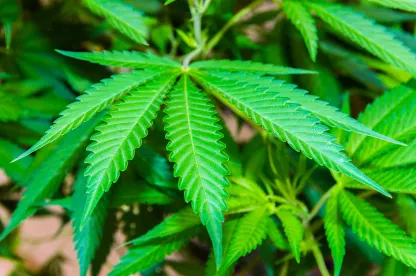On May 31, 2019, the House approved the Cannabis Regulation and Tax Act (Act), legalizing recreational use of marijuana in Illinois. This Act, effective Jan. 1, 2020, allows residents 21 years and older to legally possess 30 grams of cannabis, five grams of cannabis concentrate or 500 milligrams of THC contained in a cannabis-infused product. Non-residents will be able to possess 15 grams of cannabis. Illinois will be the 11th state to allow the use of recreational marijuana, but it will be the first state to legalize recreational marijuana through the legislature rather than by voter initiative.
This legalization will have a massive ripple effect throughout the state, but one area in particular that will have to adjust to the new law is the workplace, so it’s important employers know how to properly handle this new reality.
What does the Act Allow?
-
The Act allows employers to implement a reasonable zero-tolerance or drug-free workplace policy related to drug testing, smoking, consumption, storage, or use of cannabis in the workplace or while on call, as long as the policy is applied in a non-discriminatory manner to all employees.
-
The Act allows employers to discipline or terminate an employee:
-
For violating an employer's workplace drug policy;
-
If the employee refuses to be tested or cooperate with the employer’s drug-testing procedures; and
-
Based on the employer's good-faith belief that an employee was impaired as a result of the use of cannabis, or under the influence of cannabis, while at the workplace, while performing job duties, or while on call in violation of the employer's workplace drug policy.
-
The Act defines “impaired” or “under the influence” of cannabis if an employee:
-
Displays uncharacteristic changes in speech, physical dexterity, agility, coordination, demeanor, irrational or unusual behavior, or negligence or carelessness in operating equipment or machinery;
-
Disregards the safety of other employees or is involved in any accident that results in serious damage to equipment or property;
-
Disrupts the production or manufacturing process; and/or
-
Injures others due to the employee’s carelessness.
What does the Act NOT allow?
-
The Act does not allow an employee to be under the influence of or use cannabis in the employer's workplace or while performing the employee's job duties or while on call.
-
The Act does not allow an employer to discipline an employee on the basis the employee is under the influence or impaired by cannabis without providing the employee a reasonable opportunity to contest any employment decision.
What Should Employers Do To Be Ready?
-
Review and update workplace drug policies, including drug-testing requirements, for employees and job applicants. The use of recreational marijuana and medicinal marijuana should have separate guidelines.
-
Make sure employees understand policies regarding use of marijuana at the workplace, including any disciplinary results of unauthorized use or impairment.
-
Train managers to recognize impairment based on the use of cannabis at the workplace, while performing job duties or while on call, and how to enforce the employer’s policies.
- Implement a managerial procedure for responding to a suspected impairment, including how and what documents should be completed.
What About Federal Law?
As of now, 33 states have legalized marijuana for medicinal use and the number of states legalizing the recreational use of marijuana is expected to increase. However, federal law still classifies marijuana as an illegal controlled substance, which means it is illegal to possess or use marijuana under any circumstances (Controlled Substance Act). This inconsistency is placing a burden on employers when it comes to marijuana-related employment decisions. Until the U.S. Congress or U.S. Supreme Court settles this conflict, employers should know what they can and cannot do under both laws. Since current state laws do not allow employees to possess or use marijuana at work or to work while under the influence of marijuana, regulating workplace marijuana use is within the rights of employers.




 />i
/>i

